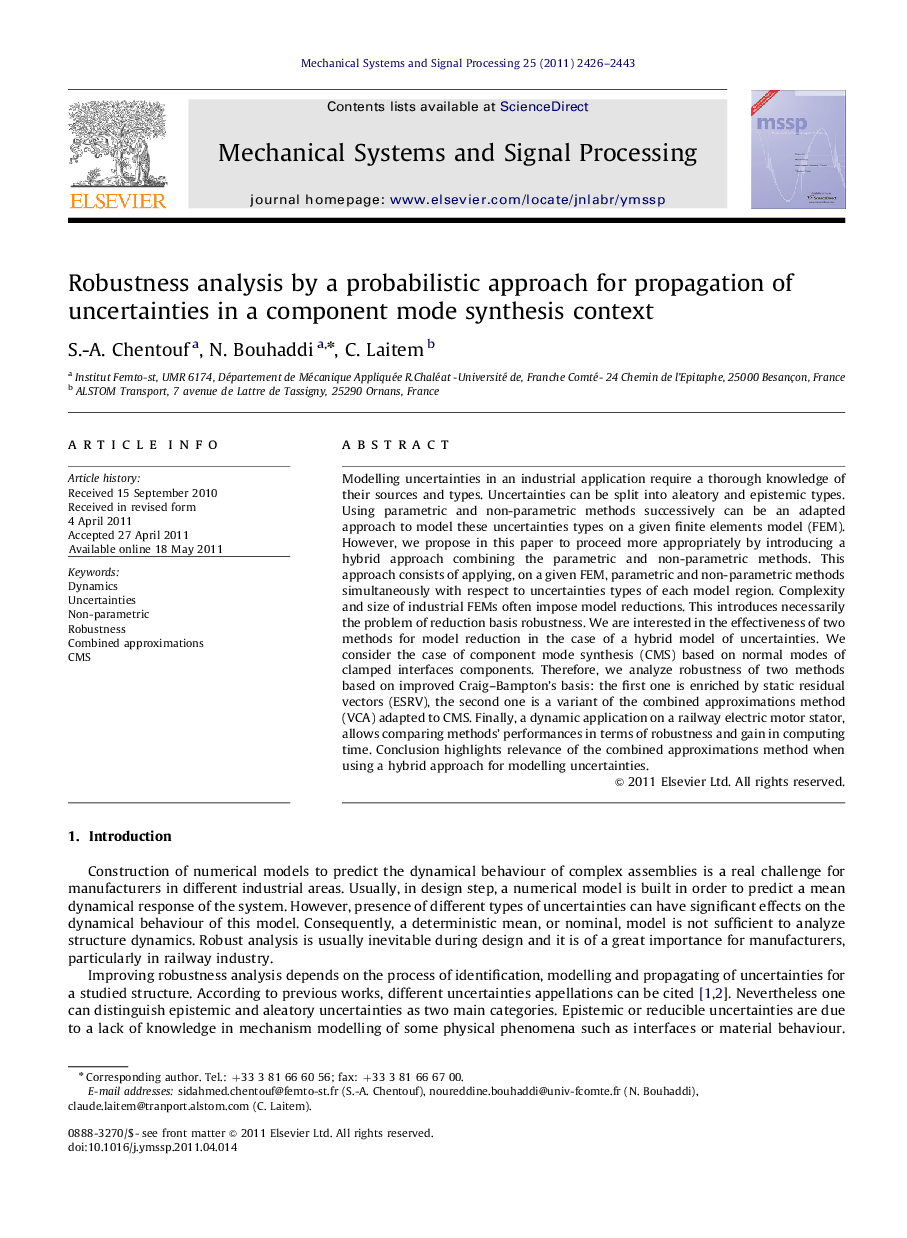| Article ID | Journal | Published Year | Pages | File Type |
|---|---|---|---|---|
| 559541 | Mechanical Systems and Signal Processing | 2011 | 18 Pages |
Modelling uncertainties in an industrial application require a thorough knowledge of their sources and types. Uncertainties can be split into aleatory and epistemic types. Using parametric and non-parametric methods successively can be an adapted approach to model these uncertainties types on a given finite elements model (FEM). However, we propose in this paper to proceed more appropriately by introducing a hybrid approach combining the parametric and non-parametric methods. This approach consists of applying, on a given FEM, parametric and non-parametric methods simultaneously with respect to uncertainties types of each model region. Complexity and size of industrial FEMs often impose model reductions. This introduces necessarily the problem of reduction basis robustness. We are interested in the effectiveness of two methods for model reduction in the case of a hybrid model of uncertainties. We consider the case of component mode synthesis (CMS) based on normal modes of clamped interfaces components. Therefore, we analyze robustness of two methods based on improved Craig–Bampton's basis: the first one is enriched by static residual vectors (ESRV), the second one is a variant of the combined approximations method (VCA) adapted to CMS. Finally, a dynamic application on a railway electric motor stator, allows comparing methods' performances in terms of robustness and gain in computing time. Conclusion highlights relevance of the combined approximations method when using a hybrid approach for modelling uncertainties.
► Propagating aleatory and epistemic uncertainties on a stator of railway motor. ► FEM size and CPU time lead to use of reduction methods with maximum prediction. ►A robust component mode synthesis (CMS) method, using combined approximations, is proposed. ► This method predicts dynamic responses with high levels of different uncertainties.
